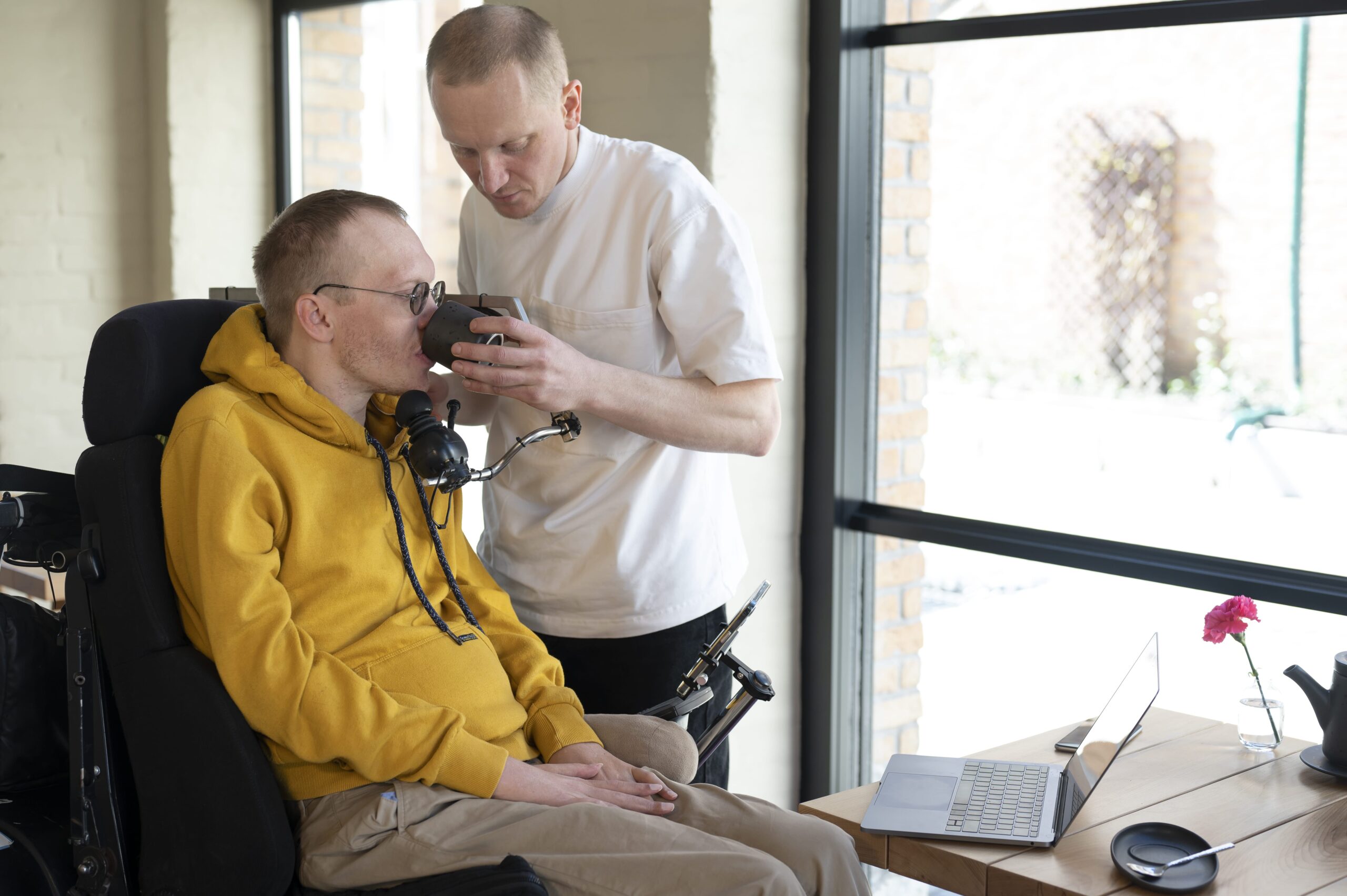Taking care of a loved one suffering from dementia can be both a rewarding and challenging journey, but how do you keep going when the emotional and physical stress starts to weigh you down? Do you find yourself struggling to balance caregiving with your own life and wondering how much longer you can keep up the pace? You’re not alone—more than 60% of carers of people with dementia report feeling stressed, and nearly 40% experience depression.
But what if there was a way to reclaim your life while still providing the best care for your loved one? In this guide, we’ll explore the wide-ranging effects of dementia on caregivers and, more importantly, share practical, actionable strategies to reduce burden and improve caregivers’ health and quality of life. From leveraging respite care services to building a robust support network, we’ll show you how to navigate this challenging journey without losing yourself in the process.
How does Dementia affect individuals?
Dementia is a term for a range of symptoms that affect memory, thinking, and communication. In Australia, it’s the second leading cause of death and the top cause of disability in older adults. Alzheimer’s disease accounts for 60-80% of cases, along with other types like vascular dementia. The condition progresses through three stages: early (mild memory loss), middle (increased confusion and behavioral changes), and late (severe cognitive decline). Common symptoms include memory loss, confusion, difficulty speaking, poor judgement, and changes in mood or behaviour, leading to a greater need for care as the disease advances.
What are the impact of dementia on caregivers?
Emotional Effects on Caregivers
Caring for a person with dementia involves immense emotional strain. Family caregivers of people with dementia often experience a variety of feelings, including stress, sadness, frustration, guilt, and even grief. Below are some common emotional responses:
a. Stress and Anxiety
As dementia progresses, caregivers stress also increases with the increasing responsibilities. They are often on high alert, constantly thinking about the well-being of their loved ones. This heightened vigilance can result in chronic stress and anxiety, particularly when the person with dementia begins to wander or exhibit unpredictable behaviour.
b. Depression
Caring for a person with dementia may be an isolating experience. Many family carers struggle with feelings of loneliness because they are unable to maintain their social lives or hobbies. Additionally, watching a loved one gradually lose their memory and independence can lead to sadness, which may escalate into depression and anxiety.
c. Guilt and Self-Blame
Caregivers often question whether they are doing enough or if they are making the right decisions. When their loved one’s condition worsens, feelings of guilt and self-blame might surface, even though these declines are inevitable due to the nature of dementia.
d. Grief
Although the person with dementia is still alive, caregivers may feel like they are slowly losing their loved one. This phenomenon, known as “ambiguous loss,” can trigger waves of grief throughout the caregiving process, especially when the person’s personality or ability to recognise others fades.
Caring for yourself is just as important as caring for your loved one. Don’t hesitate to reach out to us for dementia care and guidance in your caregiving journey.
Physical Health Consequences for Caregivers
The physical demands of caregiving can be exhausting. Many caregivers find themselves juggling multiple tasks such as bathing, dressing, feeding, and administering medications to their loved one. Here are some of the physical tolls caregiving can have:
a. Fatigue and Exhaustion
Due to the constant nature of care, caregivers may struggle to get enough rest. Sleep disturbances are common because dementia patients often have irregular sleep patterns, leading to caregivers being up at odd hours. Over time, this leads to chronic fatigue and burnout.
b. Health Problems
Caregivers often neglect their own health. Studies show that caregivers are more likely to suffer from chronic illnesses like high blood pressure, heart disease, and weakened immune systems. The physical and emotional stress of caregiving can exacerbate these health issues.
c. Risk of Injury
Providing physical assistance to a person with dementia, such as lifting or helping them walk, can result in injuries to the caregiver. This is especially true as the person with dementia becomes less mobile or more resistant to help.
How can caregiving responsibilities lead to physical health issues?
Caregiving responsibilities can lead to physical health issues due to the constant demands on time and energy. Caregivers may experience fatigue, sleep deprivation, weakened immune systems, and even chronic conditions like hypertension or heart disease as they often neglect their own health needs.
Social Impacts on Caregivers
Caregiving responsibilities can greatly impact a person’s social life. Many caregivers report feeling isolated and cut off from their friends and family.
a. Social Isolation
As caregiving consumes more time, caregivers often withdraw from social activities. They may decline invitations to social gatherings, be unable to find someone to stay with their loved one or be too exhausted to attend.
b. Strain on Relationships
Caring for someone with dementia can put a strain on relationships. Spouses, siblings, and other family members may disagree on care decisions, leading to tension and conflict. Additionally, caregivers might find that friends and family don’t understand the full extent of their caregiving responsibilities, further straining these relationships.
c. Loss of Personal Time
Caregivers often sacrifice their hobbies, personal interests, and self-care routines to provide care. This loss of personal time can contribute to feelings of resentment and frustration.
Mental and Cognitive Effects on Caregivers
The mental strain of caregiving can be as significant as the emotional and physical tolls. Caregivers often experience cognitive challenges as a result of the ongoing pressure and lack of mental rest.
a. Memory Problems
Similar to the person they are caring for, caregivers may notice their own memory lapses. This can be attributed to stress and fatigue, which can affect concentration and focus.
b. Decision Fatigue
Caregivers are often responsible for making critical decisions, from medical choices to financial planning. Over time, the constant need to make decisions can lead to mental fatigue, making even small choices feel overwhelming.
c. Burnout
Caregiver burnout is a state of physical, emotional, and mental exhaustion. When caregivers become burned out, they may feel detached or unable to continue providing care. This burnout can also contribute to feelings of guilt or shame.
Recognising Dementia Caregiver Burnout
Caregiver burnout is a state of physical, emotional, and mental exhaustion. It’s crucial to recognise the signs early:
- Feeling overwhelmed or constantly worried
- Feeling tired often
- Getting too much sleep or not enough sleep
- Gaining or losing weight
- Becoming easily irritated or angry
- Losing interest in activities you used to enjoy
- Feeling sad
- Having frequent headaches, bodily pain, or other physical problems
- Abusing alcohol or drugs, including prescription medications
If you’re experiencing several of these symptoms, it’s important to seek help and implement coping strategies.
Tips for Family Caregivers to Cope with the Burnout
While caring for someone with dementia is undoubtedly challenging, some strategies can help reduce caregivers burdens, manage the emotional, physical, and mental tolls. Below are some tips for navigating this demanding role while protecting your own well-being.
Self-Care Techniques
Prioritising self-care is crucial for maintaining the stamina needed for long-term caregiving:
- Regular Exercise: Even short periods of physical activity can boost mood and energy levels.
- Healthy Diet: Proper nutrition supports physical and mental well-being.
- Adequate Sleep: Prioritise getting enough rest, even if it means arranging respite care.
- Stress-Reduction Techniques: Practice mindfulness, meditation, or deep breathing exercises.
- Regular Health Check-ups: Don’t neglect your own medical needs.
Respite Care Options
Taking regular breaks is essential for preventing burnout:
- In-Home Respite: Professional caregivers can provide temporary relief.
- Adult Day Centres: These facilities offer daytime care and activities for individuals with dementia.
- Short-Term Residential Care: Some facilities offer short term accommodation to give caregivers a more extended break.
How can respite care benefit caregivers?
Respite care provides caregivers with temporary relief from their duties, allowing them to rest, recharge, and focus on their own well-being. It can help prevent burnout, reduce stress, and improve overall mental and physical health, ensuring caregivers are better equipped to continue their role.
If you’re feeling overwhelmed by the challenges of dementia caregiving, or if you’re looking for additional support, Our Wise Choice InHome Care is here for you. Contact us for comprehensive support.
Building a Support Network
No one should face the challenges of dementia caregiving alone:
- Family and Friends: Communicate openly about your needs and accept offers of help.
- Support Groups: Join local or online support groups for dementia caregivers.
- Professional Support: Consider talking to a therapist or counsellor experienced in caregiver issues.
Set Boundaries
Establishing boundaries is crucial for maintaining your mental and physical well-being.
- Say no when tasks become overwhelming, and don’t feel guilty for setting limits.
- Create a care schedule that includes time for yourself. If possible, share the caregiving responsibilities with other family members.
- Prioritise your tasks, focusing on what needs to be done each day and letting go of things that can wait
When to Consider Professional Care?
There may come a time when professional care becomes necessary. Signs that it might be time to consider this option include:
- The caregiver’s physical or mental health is suffering significantly.
- The person with dementia requires specialised medical care.
- Behavioural symptoms become unmanageable at home.
- The caregiver is unable to provide a safe environment.
- The level of care needed exceeds what can be provided at home.
Wrapping Up
Caring for someone with dementia is undoubtedly challenging, but it can also be a deeply rewarding experience. By understanding the potential effects on caregivers and implementing effective coping strategies, it’s possible to navigate this journey with resilience and compassion.
Remember, seeking help is a sign of strength, not weakness. Utilise the resources available, prioritise self-care, and don’t hesitate to reach out for support when needed. With the right approach and support, caregivers can provide quality care for their loved ones while also maintaining their own well-being.
As we continue to advance our understanding of dementia and improve care strategies, the hope is that the journey will become easier for both those living with dementia and their dedicated caregivers. Your role as a caregiver is invaluable, and by taking care of yourself, you’re ensuring the best possible care for your loved one. Don’t hesitate to reach out to Wise choice for support and guidance in your caregiving journey.



